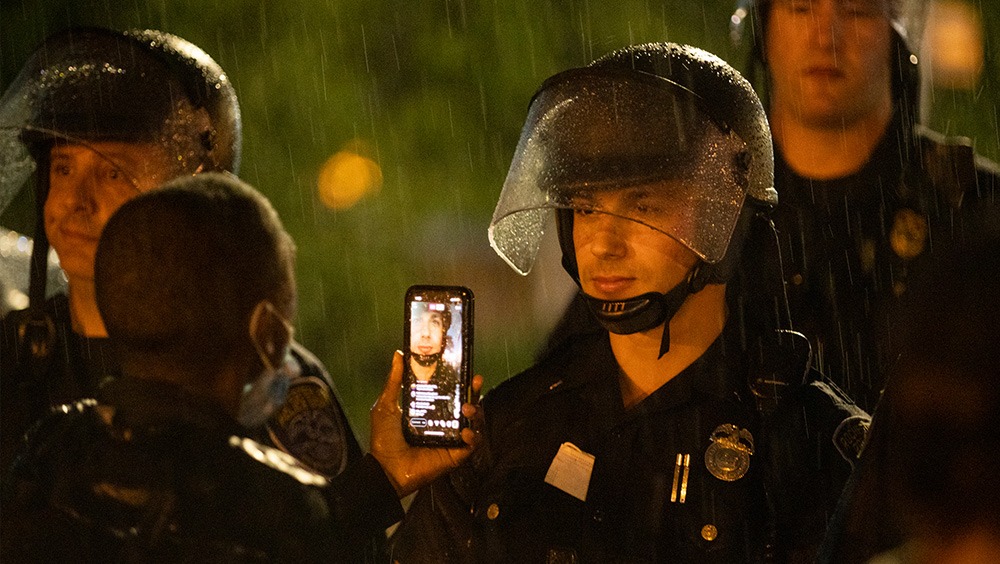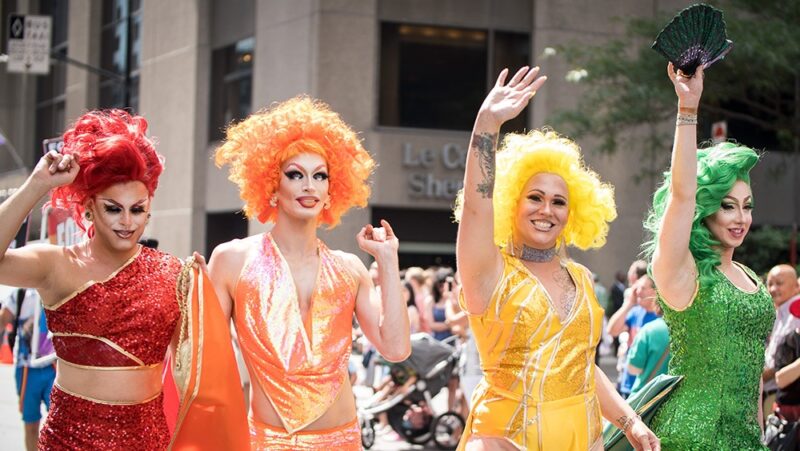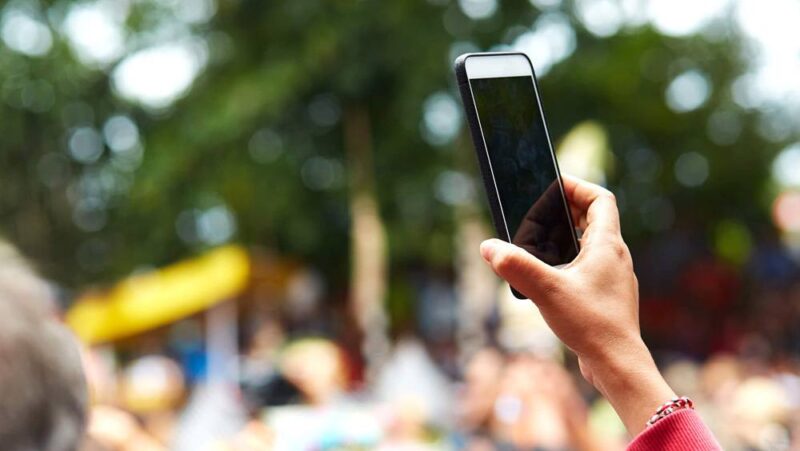Recording Police: First Amendment Right or Arrestable Offense?

Courts have recognized that First Amendment rights generally protect people when recording police who are on duty and in a public area – in photos, video or audio. But there are limits on when, where and how.
Today’s mobile devices often mean people are recording when police action is beginning or underway, sometimes producing conflicts with authorities.
In this post, we take a deep dive into recording police. We explore when you can (and can't) film law enforcement, what the courts have said about recording police, and more.
Can you record the police?
Courts have protected a general right to record police when the officers are performing official actions in a public space, such as a street or park. The right to a free press includes protection for gathering information about the government and for sharing it with others. Freedom of speech protects recording police as free expression.
If police are inside your home, you have a right to record them, but you are subject to the same limits as outside.
RELATED: What are First Amendment audits?
Are there times you cannot record the police?
There are a host of cautionary things to consider. Courts have said recording police can be limited or ended when:
- Recording would interfere with officers’ official duties – with courts often deferring to police judgment over such on-the-spot decisions.
- Police set reasonable conditions, such as the distance the public must stand back, in the name of public safety or to prevent damage to a crime scene.
- Recording would mean the public is entering or inside private property, even when the person making the recording is immediately following police officers; or when recording without permission inside police stations and jails.
- Recording would violate privacy rights, such as using technology to make audio or video recordings inside a private residence.
- Police have reasonable grounds to believe the act of recording itself is inciting violence or encouraging others to commit a crime i.e., inciting a mob or encouraging a person being arrested to resist or attack police.
Some courts also have found recording to be illegal when the aim is to expose a legally justified police activity, such as surveillance of a criminal suspect or a court-approved undercover operation.
Recording the regular activity of police officers, such as how and when an officer regularly leaves home to go to work, may be judged to be “stalking” or intimidation. And some states have laws banning the recording of private conversations without the permission of one or all of the people involved, regardless of location or if police are involved.
Recording police in public by bystanders can be controversial. Video and audio recordings have exposed police misconduct ranging from improper procedures to criminal acts. Among the high-profile instances:
- Bystanders recorded the 2020 death of George Floyd for which a Minneapolis police officer later was convicted of murder. A 17-year-old high school student used her mobile phone to record the officer kneeling on Floyd’s neck for nearly 10 minutes, despite Floyd’s cries he could not breathe. Officials credited her video as critical in documenting what police initially termed “medical distress.”
- One of the first courtroom uses of citizen video in a fatal police shooting occurred in the 2010 conviction of a Bay Area Rapid Transit officer for involuntary manslaughter for killing Oscar Grant. Prosecutors reportedly had access to multiple cellphone videos of the shooting. The incident inspired the 2013 movie “Fruitvale Station,” which recreated details from actual phone video footage. The incident was among several police-involved shootings that sparked the Black Lives Matter movement.
Four states so far have enacted "police buffer zones," setting distances that people must stand away from police activities, including when recording: Louisiana, Indiana and Florida. Arizona enacted a similar law, but it was struck down in federal court.
RELATED: Is it illegal to record in public without permission?
What do the courts say about recording police?
While the U.S. Supreme Court has not ruled directly on a citizen’s right to record police, in 1972, in Branzburg v. Hayes, Supreme Court justices speaking generally said that “without some protection for seeking out the news, freedom of the press could be eviscerated …” which has been read to include recording the police.
A number of federal appellate courts have upheld a right to record the police, citing the First Amendment and the necessity to hold authorities accountable.
In the latest such ruling, in 2022, the U.S. Court of Appeals for the 10th Circuit held in Irizarry v. Yehia that “filming the police and other public officials as they perform their official duties acts as ‘a watchdog of government activity’” and is a constitutional right.
Police may legally confiscate your recording device when making an arrest or when serving a subpoena or search warrant that covers your phone. But police cannot order you to delete photos, video or audio. Without specific court orders to the contrary, the authorities may only possess your phone for administrative purposes, such as storage of personal possessions taken when a person is arrested.
In Riley v. California (2014), the U.S. Supreme Court said police need court approval to search the contents of a phone seized during arrest. Chief Justice John Roberts wrote:
“Modern cell phones are not just another technological convenience. With all they contain and all they may reveal, they hold for many Americans ‘the privacies of life.’ The fact that technology now allows an individual to carry such information in his hand does not make the information any less worthy of the protection for which the Founders fought. Our answer to the question of what police must do before searching a cell phone seized incident to an arrest is accordingly simple — get a warrant.”
Gene Policinski is the senior First Amendment fellow at Freedom Forum.
Drag and the First Amendment Are Fabulous Together
Recording in Public: Is It Illegal to Record Without Permission?
Related Content

